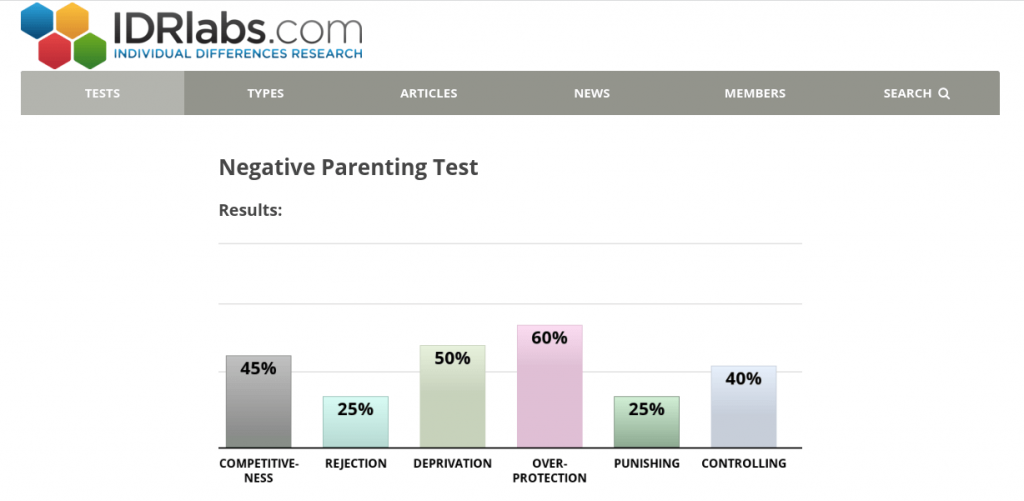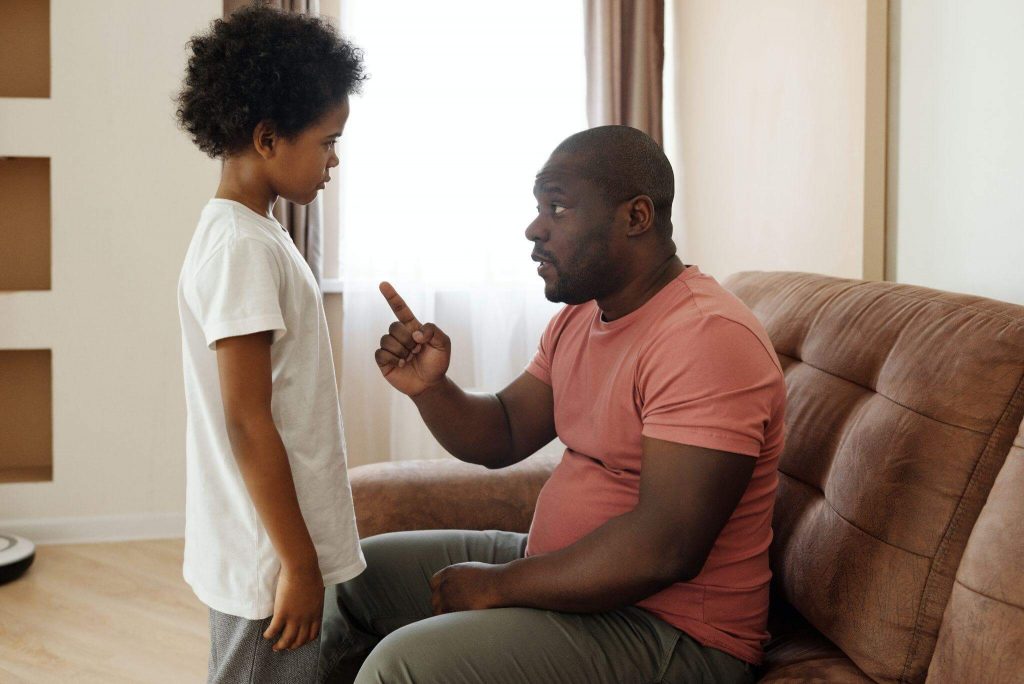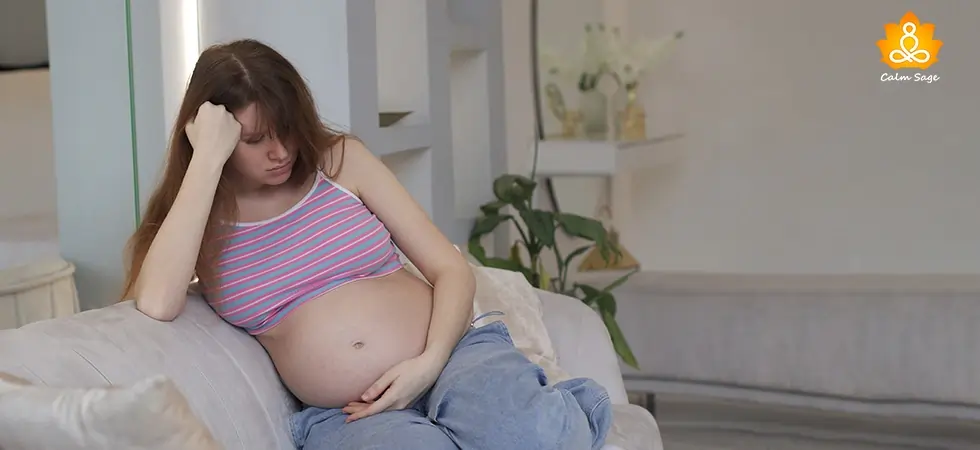The “Negative Parenting Test” On TikTok: What Is It And Is It Real?

Quite trending on TikTok right now is the “Negative Parenting Test” developed by individual differences research or IDRlabs. This negative parenting test is based on the works of Dr. John Lois, Dr. Alex Wood, and Dr. George Lockwood.
While this negative parenting test (IDR-YPT) is not specifically linked with specific psychological researchers or any psychological theory, this test has nonetheless gained popularity among teens on social media.
This viral test, among other personality tests on social media, measures whether or not you are struggling with common patterns associated with a negative or toxic childhood based on how your parents treated you.
Parenting styles, whether you like it or not, can leave a great impact on your childhood (and adulthood too). Parenting is one of the hardest jobs there is in the world and there comes a time when you question your parenting and reflect on the way you were raised as well. Your upbringing can reflect on the way you raise your children.
It’s important to understand how negative parenting styles can affect your child’s emotional, social, and physical well-being.
Let’s start by understanding the negative parenting test on TikTok.
What’s The TikTok Negative Parenting Test?

The negative parenting test by individual differences research or IDRlabs is a 30-question test that determines your damaging childhood patterns based on how your parents raised you. When you Take the Test, you’ll be asked to answer the 30 questions related to how you were raised.
The result of the test will categorize your response into six negative categories:
- Competitiveness
- Rejection
- Deprivation
- Overprotection
- Punishing, and
- Controlling
Each of these categories is a behavioral pattern that one or both of the parents used with you as a child, unknowingly or knowingly.
Let’s take a look at what is negative parenting and how it affects children.
Take Negative Parenting Test Here
What Is Negative Parenting?

Negative parenting is a behavioral pattern that combines neglectful or hurtful actions that can affect a child’s mental development and emotional wellness. The effects of negative parenting can continue well into adulthood.
While some of the behaviors may be intentional, some parents unintentionally act and may often not even realize how their actions are hurting their children.
Negative parenting examples can include:
- Speaking words of discouragement
- Directing negative emotions on the child
- Repeating criticism or failing to recognize the child’s achievements
- Treating the child without respect and trust
- Reprimanding the child, constantly
- Not appreciating the child’s efforts
- Comparing the child with other children, or
- Shaming the child for their behavior
Negative Parenting Styles
There are 3 types of parenting styles that can be considered negative and can hurt a child’s overall development. These negative parenting styles can include:
1. Authoritarian Parenting
This negative parenting style can be described as a “tough” or “strict” parenting style where the parent uses enforcement of rules, displays emotional unavailability, lacks two-way communication, is less sensitive to the child’s feelings, and demands high (unrealistic) expectations from the child.
2. Permissive Parenting
Permissive parenting is another negative parenting style that involves open communication but there is a lack of responsiveness, lacks consistency with rules, lack guidance, and direction, where parents avoid conflicts and are quick to give in to their kid’s demands.
3. Neglectful Parenting
Another negative parenting style is neglectful parenting where the parent is neglectful, emotionally unavailable, and unresponsive to their children’s emotions. In this parenting style, the parent does not offer guidance, let the kids work out their problems on their own, and is absent when it comes to participating in their child’s life. This negative parenting style causes the kid to grow up too quickly and miss out on their childhood experiences.
Is Your Parenting Style “Negative”?
As parents, it’s normal to second guess your decisions when it comes to parenting but if you’re wondering if your parenting style is negative, then here are some signs to watch out for:
1. You are overly or inadequately involved: Your involvement in your child’s life can be a big factor when it comes to parenting styles. A child needs their parents’ involvement in their life. They want to feel supported and loved by their parents. Overly uninvolved or overly involved can impact their development.
2. You withhold affection from your child: If you’re emotionally unavailable or ignore your child’s need to feel affection or attachment, then it could be a sign of negative parenting. If your child is ignored and is not acknowledged for their achievements, then it can impact their self-esteem and emotional development.
3. You shame or guilt-trip your child: These two emotions can be too big for children to understand. If you shame or guilt-trip your child, then it can make them feel not good enough and lower their self-worth at a young age. If this is something you have been doing, then it is another sign of negative parenting.
4. You don’t maintain a balance in discipline: Discipline in childhood must be balanced and delivered appropriately. If you’re putting unrealistic expectations and are not maintaining a balance in discipline, then it could be a sign of negative parenting.
No discipline while growing up can mean no boundaries and a lack of self-control. However, rigid discipline can cause the child to act out of rebellion and can raise fear in the child.
The Effects Of Negative Parenting On Kids
Negative parenting can not only leave an impact in childhood but can continue to leave an impact in adulthood. If your child is raised with a negative parenting style, then it can affect them and cause:
- Low self-esteem
- Negative self-perception
- Control issues such as rebelling against authoritative figures
- No understanding of healthy boundaries
- Higher risk of breaking the law in the future
- Developing antisocial behavior
- Aggression issues
- Low resilience
- Growing up indifferent to others’ emotions
- Difficult forming healthy relationships
If your child is raised with a negative parenting style, then they might be more inclined to act out with aggression, defiance, and rage.
In Conclusion…
Many parents may unknowingly engage in negative parenting and knowing that your parenting style is negative can cause feelings of disappointment to rise. One of the best ways to resolve your parenting style is to acknowledge your negative parenting techniques and styles.
With the right intervention and introspection, you can change your parenting style and stop the effect of negative parenting on your child. While parenting can be quite scary, you don’t have to do it alone. Mistakes are OK – as a parent and as a child – but you should understand that mistakes can be set right.
Listen to your child’s needs, accept their emotions, give them the freedom to acknowledge their feelings, and appreciate their achievements. These little gestures of affection can mean a lot to a child and their mental and emotional development.
If you need help, you can always join a support group for parents or reach out to a counselor for guidance and direction. A counselor can help you gain insight into your actions and can help you replace your negative parenting styles with positive ones.
I hope this article helped you understand about the negative parenting test on TikTok and how negative parenting can affect your child. For more, you can write to us at info@calmsage.com or DM us on social media. You can also share your thoughts and opinions with us in the comments below.
Take Care!
Next Read:
Reasons Why Gentle Parenting is The Best Parenting Style
7 Practical and Effective Parenting Tips to Help Your Autistic Kid
Overprotective Parenting Can Have Negative Impacts! Let’s Learn How To Avoid It




















